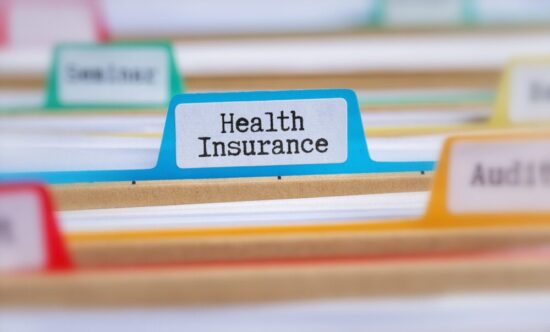
Most people understand that living without health insurance means taking on a risk. However, the exact consequences can be a bit ambiguous if you haven’t experienced them directly. By understanding what they are, you can make wiser choices about your coverage. Here’s a look at eight consequences of living without health insurance.
1. Reduced Access to Medical Facilities
While emergency rooms are required to treat anyone experiencing a legitimate medical emergency when they arrive, other healthcare organizations don’t have to accept uninsured patients. Since that is the case, individuals without health insurance may struggle to get certain types of care. This can be true even if the patient can legitimately cover the full cost of the appointment in cash on the day services are rendered.
2. Potentially No Access to Free Preventative Care
The Affordable Care Act (ACA) required insurance providers to cover certain preventative care at no cost to the patient. However, without a qualifying health insurance plan, individuals can’t access those free services.
Since preventative care appointments are an effective way to spot certain conditions early, lack of access to free services means uninsured individuals may not know there’s an issue until it turns into a critical problem.
3. Late Identification of Health Conditions
Many uninsured individuals forgo doctors’ appointments until a health situation is severe. As a result, conditions that could have either been corrected or significantly slowed if they were spotted early usually go unchecked for far longer. This can lead to the need for more costly treatments, along with potentially poorer outcomes.
In some cases, the late identification of a health condition allows the problem to grow to the point of becoming fatal. This can include conditions causing acute events that result in immediate death and those reaching a point where there isn’t a viable treatment option left.
4. Higher Amounts of Medical Debt
Without insurance, a significant accident, injury, acute illness, or another health issue that requires emergency care can lead to substantial amounts of medical debt. While the exact costs vary, most emergency room visits cost at least a few hundred dollars. Others may run into the thousands, and if the situation mandates a long-term stay, surgical procedures, or similar steps, the total may reach the tens of thousands, if not more than six figures.
Regardless of the total, medical debt can burden any household but is often particularly hard for the uninsured to handle. It can result in cumbersome monthly payments for years or may even push the patient into bankruptcy.
5. Larger Bill at Tax Time
While the federal insurance mandate is long gone, some states still have individual mandates in place. In those states, uninsured individuals can owe several hundred dollars more when they file their taxes all because they don’t have qualifying coverage.
The states with individual mandates are California, Massachusetts, New Jersey, Rhode Island, and Vermont. The District of Columbia (Washington DC) has one in place as well.
Each state’s individual mandate program works a bit differently. As a result, uninsured individuals will need to review those rules to get a full picture of the financial impact.
6. Skipping or Reducing Medications
Prescription drug costs can be quite high, even for some fairly common medications. In some cases, uninsured adults see price tags above what they can pay. As a result, they may skip doses, cut doses in half, reduce the number of medications they’re on, or otherwise deviate from their doctor’s recommendations.
The consequences of altering medication schedules can vary. In some cases, the drawbacks may be minor. However, for more serious medical conditions that require ongoing treatment, the consequences can be dire and may even be fatal.
7. Lower Quality Care
When a person has to make healthcare provider choices based on affordability or whether the facility is willing to see uninsured individuals, this can result in lower quality care. Doctors working for low-cost providers are required to meet the same standards as any other physician to get and maintain a license, and many of them are quite skilled. However, the odds of running into a doctor who performs below the average are far higher.
There may also be greater chances of encountering a physician that’s going to make assumptions. For instance, some low-cost clinics may see far more drug-seeking behavior, increasing the odds that they’ll view anyone reporting a pain issue through that lens. If that occurs, it could result in improper treatment or a generally poor experience.
8. Premature Death
Without access to affordable medical care, a person’s odds of premature death increase. Since uninsured individuals commonly forgo medical treatments due to a lack of affordability, this can mean that they’re more likely to die earlier than they would if they had better access to healthcare.
Can you think of any other consequences of living without health insurance? Have you encountered any of the issues above during a period without health insurance and want to tell others about your experience? Share your thoughts in the comments below.
Read More:
- 5 Tried-and-True Strategies for Saving Money on Health Insurance
- Top Tips to Prioritize Your Health and Wellbeing
- Save More Money by Not Having Health Insurance
Come back to what you love! Dollardig.com is the most reliable cash back site on the web. Just sign up, click, shop and get full cash back!